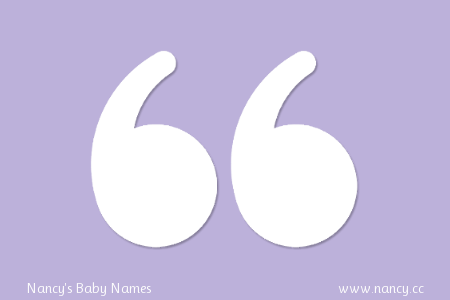On June 30, 1963, rare identical quadruplets were born to Delores and Bernard Harris of Chicago, Illinois.
The four baby girls were named:
- Sheena Alice
- Shawna Denyce
- Sherry Julienne
- Shannon Nellie
Delores gave them first names starting with “Sh” because she and Bernard already had a 15-month-old son named Shawn.
The first three middle names (Alice, Denyce, and Julienne) honored of staff members at Michael Reese Hospital, where the quadruplets were born. The fourth (Nellie) honored Delores’ mother.
The quads made headlines across the country as soon as they were born. The Harris family was also featured in a long article (and over a dozen photographs) in the November 1963 issue* of Ebony magazine.
All this attention may have influenced the usage of their first names, though it’s hard to tell. Here’s the data:
| Girls named Sheena | Girls named Shawna | Girls named Sherry | Girls named Shannon | |
| 1965 | 77 | 552 | 7,383 | 2,569 |
| 1964 | 100 | 589 | 8,492 | 2,299 |
| 1963 | 101 | 458 | 9,064 | 2,052 |
| 1962 | 85 | 295 | 9,229† | 1,394 |
| 1961 | 72 | 280 | 8,356 | 1,235 |
The name Sherry had just begun declining in usage in 1963, and Shawna and Shannon were already on the rise (though it does look like they rose a bit faster the year the quads were born…?). I think the strongest case can be made for Sheena, which saw a discernible uptick in 1963-1964.
What are your thoughts on these names? Which one do you like best?
*Incidentally, the same issue covered the late August civil rights demonstration during which Martin Luther King, Jr., delivered his renowned “I Have a Dream” speech.
Sources:
- “Nation’s Newest Identical Quads.” Ebony Nov. 1963: 138-146.
- “Chicago Quads Identical! Beat 3 Million to 1 Odds.” Chicago Tribune 4 Jul. 1963: 1.
Images: Clippings from Ebony magazine (Nov. 1963)




